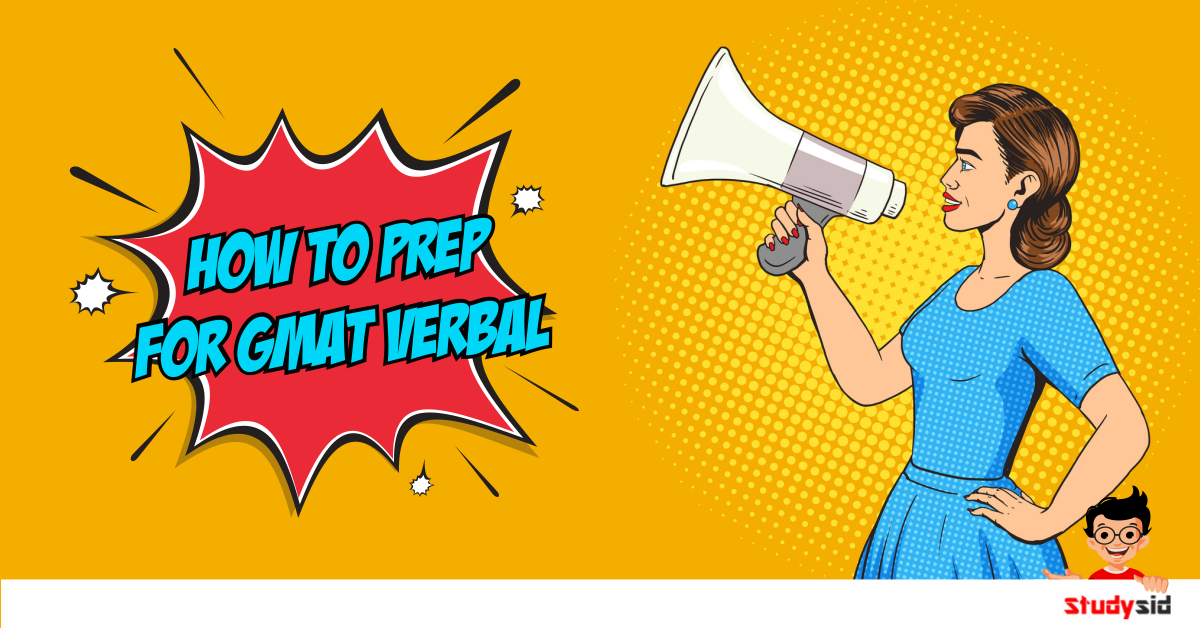Finding it difficult to prepare for GMAT Verbal? We’ve got this for you…
What is the verbal section of GMAT?
The Verbal section actually stands for the verbal reasoning section. The Verbal Reasoning Section is as important as the Quantitative Reasoning Section of GMAT. So it is essential that you do not underestimate the importance of this section. However, according to the 2014 statistics, more people were scoring higher in Quantitative Analysis rather than Verbal Reasoning.
Also, it was found out that the students found the Quantitative Analysis Section easier than The Verbal Reasoning Section. However, with the available study material and coaching, this issue of low scores has been reduced to almost nothing at all. This section also requires more of reasoning rather than the vocabulary that you assume. You will clearly be judged on your ability to think constructively and not on how fluent your language is or how enhanced your vocabulary is. You should be able to read and understand the matter given and also be able to evaluate and infer relevance out of it.
SCORING AND TIME LIMITS:
The scoring of this section is the same as that of the Quantitative Reasoning Section of GMAT. The scores in the Verbal Reasoning Section range from 0 to 60. However, the score of 60 is not really considered as much sine no one has achieved it as yet and the highest score is 51. Hence if you get 51 in the Verbal Section then you have received a Perfect Score. You will have only about 65 minutes to solve and answer 36 questions. Hence you can not spare to waste any minute of it. Whilst solving mock papers and even in the main examination, ensure that you manage your time efficiently. Take only 2-4 minutes in reading the passage. Then only take 5 minutes and nothing more to answer all the questions asked. Make sure that your whole passage is done within the time limit of 10 minutes only.
TOPICS UNDER THE VERBAL SECTION OF GMAT
There are three types of questions asked under the verbal section:
- Reading Comprehension
- Critical reasoning
- Sentence Correction
Reading Comprehension
These type of questions usually test your ability to comprehend statements find the relevance and irrelevance and the basic logical relations between them. The reading skills will typically test you on the aspects such as the main idea, inference and supporting idea.
Reading Comprehension will consist of questions which ask you to analyse the content or data and draw conclusions or inferences.
Critical Reasoning
Critical Reasoning measures your ability to make or evaluate certain given arguments and to remove, find or evaluate a solution for the same.
Questions are usually based on a passage which is not really a huge one comprising of a maximum of 150 words. It comes with a set of certain questions mainly based on the subjects such as why the argument was created, what is wrong in the argument, what is that one aspect supporting or going against the argument. You will be provided with five options per question and you have to choose the correct one according to your logic.
Sentence Correction
As the name suggests, Questions based on sentence correction mainly depend on vocabulary, grammatical knowledge and also logic to some extent. You will be given a question and there will be an error or any part of the sentence underlined. There will be five options given to you which clearly represent the substitutes to the underlined part of the question.
According to your knowledge and grammatical skills, you have to select the statement or the answer which is more relevant to what you have been asked.
Tips on How to Prepare for GMAT Verbal
- Always remember to start preparing for this section as early as possible. Time management in this section is very crucial.
- Start preparing for this section as soon as you can. It is advisable to commence at the least 4 months prior to the examination.
- Maintain a track of how much are you solving, how many questions you are solving and how many errors you are making.
- Review all tough questions so that you do not make errors with them in the main examination.
- Set a target as to how much you want to score in the verbal section. Also, it is important to set a score that is achievable.
We hope you learnt How to Prepare for GMAT Verbal after reading this article. Best of luck for your GMAT Exam!

